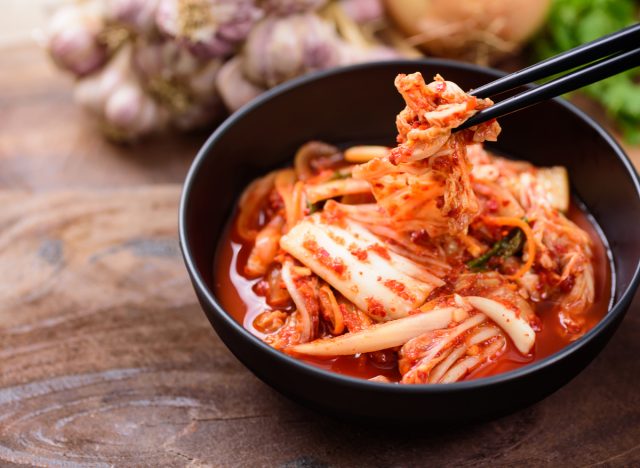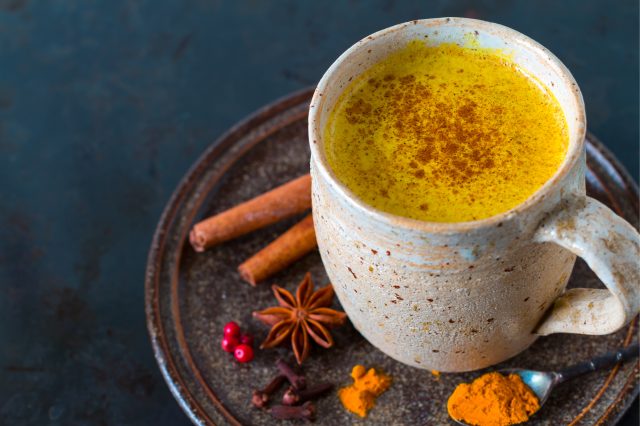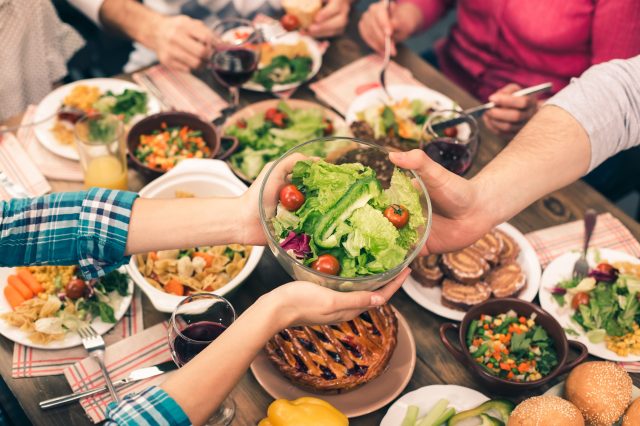The Best Foods to Fend Off Seasonal Affective Disorder (SAD) Symptoms

If you're suffering from a "blue Christmas," try eating fewer candy canes and more pomegranates. Adopting a healthier diet might help lift your spirits if you're suffering from a bout of a type of depression called seasonal affective disorder, aptly abbreviated as SAD.
Many people find themselves feeling sad (in the literal sense) during the winter holidays. For some, sadness is a cyclical event related to the change in seasons. Seasonal affective disorder (SAD) is thought to be triggered by getting less-than-normal sunlight exposure due to shorter days during winter months. This may cause a chemical change in the brain. Among common symptoms of SAD are fatigue, depression, hopelessness, and social withdrawal. Typical treatments include light therapy, talk therapy and antidepressant medications. But a change in diet may be useful, too.
While some studies have failed to find a specific nutritional intervention that relieves symptoms, other clinical research suggests that foods and specific nutrients that improve clinical depression may also be effective in lifting SAD. Registered dietitians and other nutrition experts often recommend that their patients suffering from SAD experiment with eliminating certain foods and adding healthier foods to see if they feel improvement.
"When discussing depression with my patients, I often use the phrase 'blue bowel,' a lighthearted name for the very serious relationship between depression and your gut," says Uma Naidoo, MD, a Harvard-trained nutritional psychiatrist, professional chef, nutritional biologist, and author of the national and international bestseller This Is Your Brain on Food. "Food influences the chemical messages that bacteria send from your gut up to your brain, signals that can make you feel either drained and depressed, or energized and uplifted."
To improve the health of your gut microbiome and hopefully part those SAD clouds, try taking a strategic approach to your diet by incorporating more of these foods and healthy habits into your routine. Here's what the experts suggest.
Try fermented foods

Kimchi, sauerkraut, pickles, kefir and yogurt promote the good bacteria in your gut. Naidoo suggests that this can elevate certain brain chemicals that may help relieve depression.
Eat more berries & leafy greens
These are good choice because they are loaded with antioxidants and other brain-friendly nutrients, according to Naidoo. Additionally, a recent study in the British Journal of Nutrition found that frequently of eating berries and other fruits was associated with greater psychological well-being and less depression.
Naidoo also claims that vegetables like kale, spinach, arugula, collard greens are great for safeguarding your mental health and supporting cognitive function.
Snack on nuts & seeds
According to Naidoo, walnuts are particularly beneficial for brain health because they contain tryptophan, an amino acid needed for the production of the mood-stabilizing hormone serotonin.
Turn up the turmeric (& other spices)

"Think wintertime's warming spices: nutmeg, cinnamon, and ginger," says Naidoo.
Curcumin, the active ingredient in turmeric, in particular, is a powerful anti-inflammatory that protects the brain.
"Take [turmeric] with a pinch of black pepper to improve absorption," suggests Naidoo.
Follow the Mediterranean diet
Olives, olive oil, all sorts of vegetables, beans, nuts, seeds, and fish are all in line with a Mediterranean style of eating.
"Most people know that what you eat can affect your weight, your heart and risk for diabetes, but not as many realize how much diet can affect depression," says Bill Bradley, RD, president of MediterraneanLiving.com.
Studies have shown that switching to a Mediterranean diet from a diet of highly processed foods significantly reduces the risk of depression in men and women and even older adults.
"Diets high in ultra-processed foods increase risk of depression so the combination of taking out processed foods and increasing nutrient dense foods doubles the mood enhancing effects of the Mediterranean diet," says Bradley.
Pass on the sugar plums & strive for balance

Avoid that plethora of Christmas candies, cookies, and sweetened beverages. on the holiday buffet (or just take a tiny nibble). Those treats can exacerbate a down mood.
Research has found that a high sugar intake has a negative impact on psychological health and can contribute to and worsen depressive symptoms in general.
"Eating sugary treats can wreak havoc on your blood sugar levels making you feel like you're traveling on a roller coaster instead of a smooth road," warns registered dietitian nutritionist Bonnie Taub-Dix, RDN, CDN, and author of Read It Before You Eat It: Taking You from Label to Table.
Also be aware of eating habits that are common among SAD sufferers. An analysis of six studies in the journal Frontiers in Psychology noted that compared with healthy patients, SAD patients tended to consume significantly larger meals late in the day and snacked more in the evenings. They also exhibited a greater frequency of binge eating and emotionally driven eating habits. That's why Taub-Dix says it's important to avoid skipping meals or going on restrictive, unrealistic diets.
"Eat regularly; it's true that when you balance out your meals, you'll feel more balanced," advises Taub-Dix.
Choose carbs—but carefully
Think about it: When we don't feel well, we usually crave "comfort" foods, the foods we were given as kids, foods that make us feel better, foods that don't require a lot of work to digest and absorb. Usually, this type of food is carbohydrate. While fat and protein take a long time to break down in our digestive system, carbohydrate breaks down quickly.
"Although way too many people have negative things to say about carbohydrates, carbs can actually make you feel good, provided you eat the right types of carbs and the right amounts for your body," says Taub-Dix. "You'll derive energy and feel more uplifted the fastest from eating carbs. Carbohydrates have a powerful effect on serotonin, a chemical in the brain that has a strong influence over both emotion and eating, thereby creating a calming sensation."
Get that calming flood of serotonin from slow-burning carbohydrates such as whole-grain bread, potatoes and pasta containing fiber and protein rather than from sugary carbs, which can bring your mood quickly down.
Final thoughts
Bear in mind that not all diets are created equal. The foods that may bring happiness to someone with SAD may bring heartburn, headache, and an even worse down-in-the-dumps feelings to another SAD sufferer. Everyone reacts differently, which is why Naidoo believes "the best care is personalized to each person's individual needs."
Naidoo always delivers two more bits of advice to her SAD patients that to help relieve the winter blues. First, she emphasizes the importance of nurturing healthy relationships. Interacting with friends and family and getting involved in community are proven remedies for depressive symptoms. Additionally, she stresses the valuable impact of getting outdoors.
"Just 10 minutes of outside time provides about 80% of your daily vitamin D needs, which supports your mood," Naidoo says.
Something else of critical importance to keep in mind; although making adjustments to your diet can sometimes help alleviate SAD symptoms, healthy eating is only part of the solution to finding relief. People whose symptoms are pronounced and prolonged should notify their physicians to come up with a well-rounded treatment plan, which may include talk therapy or medication in addition to dietary changes.









